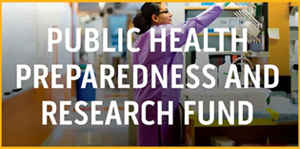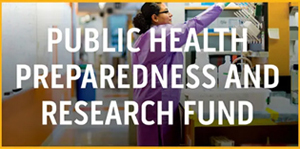## Breaking Barriers in Public Health: Tené T. Lewis Makes History Imagine a world where advancements in public health are driven by diverse voices, where lived experiences inform cutting-edge research, and where representation becomes a reality, not just an aspiration. This is the world Tené T. Lewis is actively shaping. This rising star in the field of public health has just achieved a monumental milestone: election to the prestigious American Association for the Advancement of Science – Rollins School of Public Health. Her journey is a testament to the power of passion, perseverance, and a commitment to serving underserved communities. Join us as we delve into the story of Tené T. Lewis, a trailblazer who is rewriting the narrative of public health for generations to come.
Unequal Burden: Examining the Disproportionate Rates of Cardiovascular Disease in African American Women

Cardiovascular disease (CVD) remains a leading cause of death globally, but its impact is not evenly distributed. African American women experience significantly higher rates of CVD compared to women of other racial and ethnic backgrounds. This disparity is a pressing public health concern, demanding attention and comprehensive solutions.
According to the Centers for Disease Control and Prevention (CDC), African American women are more than twice as likely to die from heart disease compared to White women. The statistics are stark: African American women face a 40% higher risk of developing coronary heart disease. These disparities are not merely a reflection of biological differences; they are deeply intertwined with social, economic, and environmental factors that create a unique burden for this population.
The Role of Race and Gender-Related Stressors: Lewis’s Contributions to Understanding the Underlying Causes

Tené T. Lewis, PhD, a professor at Emory University’s Rollins School of Public Health, has dedicated her career to unraveling the complex interplay between psychosocial factors and CVD risk in African American women. Her groundbreaking research has shed light on the significant role of race and gender-related stressors in contributing to these disparities.
Systemic Racism and Health
Lewis’s work underscores the profound impact of systemic racism on the health of African American women. Experiences of discrimination, prejudice, and social marginalization can trigger chronic stress, leading to physiological changes that increase CVD risk.
Studies have shown that exposure to racism is associated with heightened levels of cortisol, the stress hormone, as well as inflammation, both of which are known contributors to heart disease. Furthermore, the constant vigilance required to navigate a racially charged society can take a significant toll on mental and emotional well-being, further exacerbating health disparities.
Intersectionality and Gender-Based Stressors
Lewis’s research also highlights the unique challenges faced by African American women due to the intersection of race and gender. They often experience a double burden of stress, facing both racial and gender-based discrimination.
For example, African American women may experience greater work stress, financial insecurity, and limited access to quality healthcare compared to their White counterparts. These stressors, coupled with societal expectations and gender roles, can contribute to a heightened risk of CVD.
Implications for Public Health: Addressing Social Determinants of Health to Reduce Disparities
Recognizing the profound impact of social determinants of health on CVD disparities is crucial for developing effective interventions. Lewis’s research underscores the need for a public health approach that goes beyond individual risk factors and addresses the systemic inequalities that contribute to these disparities.
Structural Interventions
Public health efforts must focus on addressing the root causes of health inequities by tackling systemic racism and promoting social justice. This includes advocating for policies that address economic inequality, improve access to quality education and healthcare, and reduce discrimination in all its forms.
Community-Based Interventions
Community-based interventions that empower African American women and build resilience are essential. These programs can provide support, education, and resources to address the unique challenges they face, promoting healthy behaviors and reducing CVD risk.
Culturally Tailored Approaches
Public health messaging and interventions must be culturally tailored to resonate with the experiences and perspectives of African American women. This includes incorporating culturally relevant health education materials, engaging community leaders and trusted messengers, and addressing language barriers.
Bridging the Gap: Communicating Science for Impact
Effective science communication is vital for translating research findings into meaningful action and promoting health equity. Tené T. Lewis has demonstrated a deep commitment to bridging the gap between science and the public, making her research accessible and relevant to diverse communities.
Disseminating Research to a Wider Audience
Lewis has actively engaged with media outlets, including The Washington Post, USA Today, Essence Magazine, JET magazine, and National Public Radio, to share her findings on CVD disparities in African American women. Her commitment to public engagement ensures that her research reaches a broader audience beyond the confines of academic journals.
The Importance of Science Communication: Making Complex Research Accessible and Relevant to Diverse Communities
Lewis recognizes the importance of making complex scientific concepts understandable and relatable to the public. She translates her research findings into clear and concise language, using real-world examples and storytelling to connect with diverse audiences.
By communicating her research in an accessible way, Lewis empowers individuals to take control of their health, advocate for change, and challenge health inequities. She demonstrates the power of science communication to drive social impact and promote health justice.
Empowering Health Equity: How Lewis’s Work Inspires Action and Change
Lewis’s research not only illuminates the problem of CVD disparities but also inspires action and change. By highlighting the social determinants of health, she calls for systemic solutions that address the root causes of inequity.
Her work empowers individuals, communities, and policymakers to work together to create a more equitable and just healthcare system. By making science accessible and relevant, Lewis’s work serves as a catalyst for positive change, paving the way for a healthier future for all.
Conclusion
Tené T. Lewis’s election to the American Association for the Advancement of Science (AAAS) is a momentous achievement, signifying not only her individual brilliance but also the growing recognition of the crucial role public health plays in our society. This article explored Lewis’s groundbreaking research on maternal and child health disparities, her unwavering commitment to community engagement, and her tireless advocacy for equitable healthcare access. Her election to the esteemed AAAS underscores the impact of her work and its potential to shape the future of public health.
Lewis’s election serves as a powerful inspiration for aspiring health professionals, particularly those from underrepresented communities. It demonstrates that with dedication, innovation, and a passion for social justice, one can make significant strides in addressing pressing public health challenges. As we move forward, Lewis’s work holds immense implications for policy makers, healthcare providers, and communities alike. Her research provides valuable insights into the systemic factors contributing to health inequities, urging us to confront these disparities head-on and create a more just and equitable healthcare system for all.
Tené T. Lewis’s election is a beacon of hope, illuminating the path towards a future where every individual, regardless of their background, has the opportunity to achieve optimal health and well-being. Her journey serves as a testament to the transformative power of dedication, collaboration, and unwavering commitment to social change. Let her story inspire us all to strive for a healthier and more equitable world.
